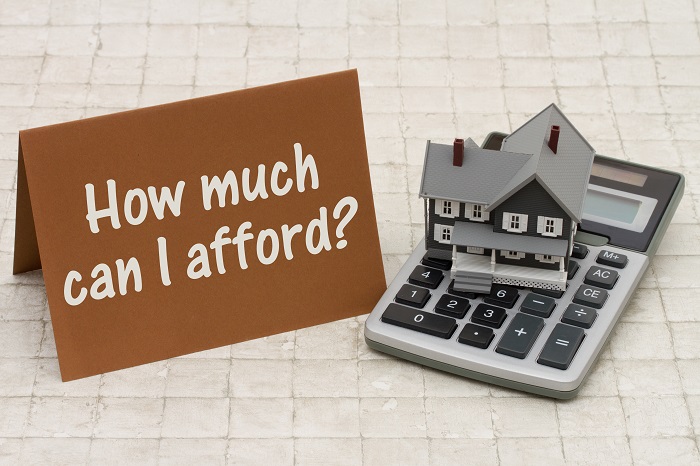A good investment could completely alter the situation, giving people the means to pursue the goals. Real estate remains one of the most underappreciated or disregarded investments, even though most of people now have diversified portfolios that include equities, gold, bonds, government schemes, etc. Real estate may be a great investment option for you in light of the fact that the average income has increased thanks to the widespread economic expansion in most locations.
Investing in real estate is often rewarding for those looking to minimise their taxable income while building a solid portfolio. Inflation causes consistent price changes, so there are certain things to remember whether you’re in the market to buy or sell a home.
You’ll be able to make a well-informed decision about purchasing real estate if you seriously consider and weigh the pros and drawbacks of the financial, regulatory, and tax restrictions for living in and away from the property.
The Value of Property and Its Significance
For generations, countries have gone to war for control of land, sparing no expense in pursuing this precious commodity. The demand for land has stayed the same. Even if no kingdoms exist, everyone still wants a piece of the pie. Because of its consistent demand and high value, investing in premium real estate can be a wise decision that yields far larger returns than more conventional investment vehicles. Everyone wants to own their own home, and doing so can bring both emotional and financial fulfilment. The scarcity of land in most major cities means that even a small flat purchase can yield benefits in rental income or capital gains upon resale.
Things to Think About Before Putting Your Money into Property
Someone with no background in the industry can be tempted by the promise of easy money to put their money into a property that turns out to be a money pit. An inexperienced investor should bear the following before taking the plunge into the real estate market.
- Have patience
Buying a home is a time-consuming endeavour; legitimate real estate deals can take several days to close. Although some real estate agencies claim to be able to finish the paperwork in a single day, being patient pays off in the end. If you buy too soon, you can overpay or end up with a house that doesn’t meet your needs. In addition, the seller’s inability to meet a deadline may postpone the project, leaving you waiting for a return on your investment.
- Do your homework before buying
It is essential in today’s market to prepare thoroughly before going out to view potential properties. With so many upcoming projects, it can take time to determine which property is best, especially because sellers have a reputation for sugarcoating the buying process. Your investment returns may be affected by some factors, including the property’s amenities, the building firm’s track record, the building materials’ quality, and the location. You need to do your homework before purchasing to avoid regret and wasted money.
- See if it’s in the papers
It is conceivable for a person unfamiliar with the real estate sector to get duped into purchasing a property with fraudulent paperwork, making the property’s documentation the single most crucial consideration. Investing in real estate requires first establishing that the titles are free and clear to avoid costly and time-consuming litigation that could wipe out your initial return. If you have a lawyer look over your property documents, you can avoid buying a house in the middle of a legal dispute. Property owners who sell for less than the going rate should raise red flags since there may be pending legal action against them or other problems within the ownership structure.
- Be sure to compare prices
To help investors determine a property’s market worth, most governments provide a “guidance value.” You can avoid paying more than a home is worth by keeping an eye on market trends using the knowledge you gain from being aware of the going rate in your area. You can extrapolate future gains by studying market rates and figuring out trends.
- Visit with neighbours
Most of people would benefit from talking to the neighbours, yet they rarely do so. This can provide you with an inside look at the location, allowing you to identify and eliminate potential sources of investment risk. You may learn about the area’s progress and the potential for further growth by talking to them, and you can also find out what the current market rates are. One can acquire an accurate picture of the property they intend to buy because their neighbours aren’t trying to sell them anything.
- Do the math on your money
It would help if you did some budgeting to ensure you can reach your objectives. Bank loans are simple to obtain, but careful consideration of interest and other costs is essential.
- Keep a good attitude
Maintaining optimism when closing a real estate sale is crucial, as there will inevitably be instances where things don’t go as planned. Keeping your cool around real estate sellers is a surefire way to increase the value of your negotiations.
- Discuss terms
Real estate transactions rely heavily on negotiations because everyone wants to maximise their financial gain. You can save a lot of money and score freebies like parking spots, furniture, and more if you know how to negotiate.
- Weigh the potential dangers
While real estate investments tend to be more secure than the stock market, no investment is risk-free. Since legal complications and property conflicts are widespread, prospective buyers must ensure the land they’re eyeing is problem-free.
Conclusion
Adding real estate to your investment portfolio is a smart move. Real estate is rising when other major asset classes, like equities, are falling. There are several reasons why real estate is a good investment, including the potential for stable income flow, significant appreciation, tax benefits, and above-average risk-adjusted returns. Obviously, before investing in real estate, whether in physical property, REITs, or anything else, it is vital to consider certain criteria, such as those outlined above.



